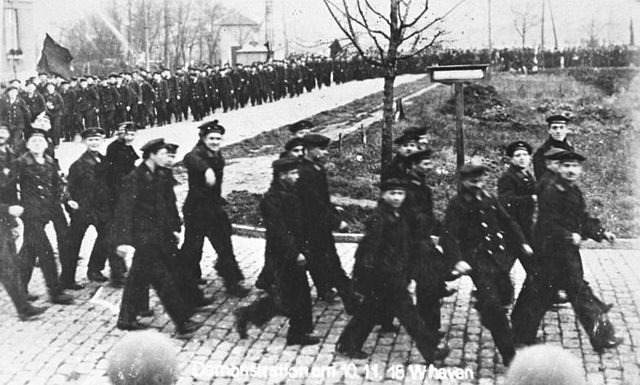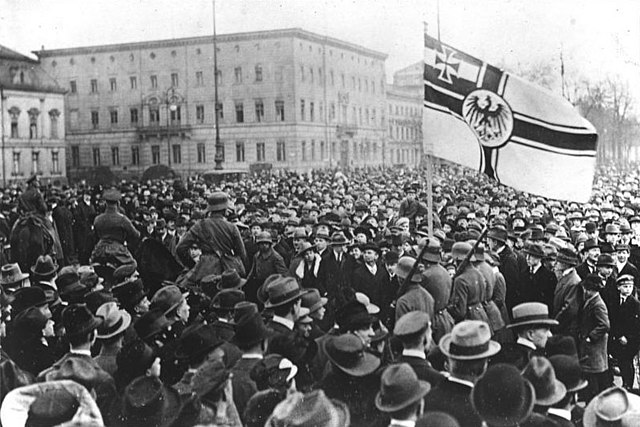The Spartacist uprising, also known as the January uprising, was an armed uprising that took place in Berlin from 5 to 12 January 1919. It occurred in connection with the November Revolution that broke out following Germany's defeat in World War I. The uprising was primarily a power struggle between the Social Democratic Party of Germany (SPD) led by Friedrich Ebert, which favored a social democracy, and the Communist Party of Germany (KPD), led by Karl Liebknecht and Rosa Luxemburg, which wanted to set up a council republic similar to the one established by the Bolsheviks in Russia. In 1914 Liebknecht and Luxemburg had founded the Marxist Spartacus League, which gave the uprising its popular name.
Soldiers on the Brandenburg Gate during the Spartacist uprising
Barricade battle in Berlin, January 1919
Government troops in the Vorwärts building
Spartacist barricade
The Weimar Republic, officially known as the German Reich, was a historical period of Germany from 9 November 1918 to 23 March 1933, during which it was a constitutional federal republic for the first time in history; hence it is also referred to, and unofficially proclaimed itself, as the German Republic. The period's informal name is derived from the city of Weimar, which hosted the constituent assembly that established its government. In English, the republic was usually simply called "Germany", with "Weimar Republic" not commonly used until the 1930s.
Sailors during the mutiny in Kiel, November 1918
Philipp Scheidemann addresses a crowd from a window of the Reich Chancellery, 9 November 1918.
Official postcard of the National Assembly
Crowds in Berlin watching the Marinebrigade Ehrhardt march in under the imperial war ensign during the Kapp Putsch








